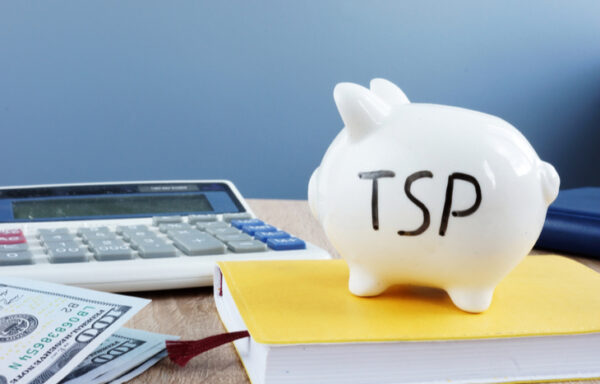What is a Shareholder?
Do you own shares of a company? Have a portfolio of stocks? Contribute to a vested retirement account? If so, you’re a shareholder. A shareholder is any person, company or organization that owns one or more shares of a company. By simply buying shares, you become a shareholder. Anyone can do it, and there are very few barriers to entry in becoming one. It’s how most Americans grow their wealth over time.
While owning stock makes you a shareholder, the ramifications go far beyond exchanging money. Owning stock comes with special entitlements and privileges, as well as duties when it comes to reporting gains and losses on your taxes.
Here’s a look at what it means to be a shareholder and how buying stock in a company affects both the company and the investor.

The Risk and Reward of Being a Shareholder
There’s effectively infinite upside to being a shareholder. So long as the company continues to grow, shareholders continue to reap the benefit of an appreciating share price and dividends paid out. This is what makes equities such a powerful investment vehicle. A thriving company can return compounded value to investors year after year for decades.
However, there’s also a known downside to owning stock in a company: bankruptcy. If a company becomes insolvent and can’t pay its debts, it declares bankruptcy and has its assets liquidated. For most investors, this means a total loss on their investment—or, at best, a minimal amount returned through bankruptcy proceedings.
Shareholders balance this risk and reward by choosing the companies they invest in. Moreover, stocks are liquid assets, which means investors can buy or sell freely based on sentiment. If you believe in a company, you can increase your shareholder position. If your sentiment has soured, you can exit the position and cease to be one.
Types of Shareholders: Common and Preferred
There are a wide variety of share types investors can buy, including voting and non-voting. Depending on the shares you own, you’ll fall into one of two shareholder groups: common or preferred.
- Common shareholders hold common stock, which entitles them to regular voting rights and an equal share of dividends split amongst all common stockholders. It also entitles shareholders to an equal part of liquidation value in the event of insolvency.
- Preferred shareholders are those who own some form of preferred stock. This entitles them to priority dividends and payouts in the event of insolvency. That said, preferred shareholders typically don’t have any voting rights.
Most retail investors are common shareholders. They either don’t have access to preferred stock or the premium for preferred stock doesn’t offset the value of common stock voting rights. That said, many public companies do offer both. For example, investors can become Alphabet shareholders by buying either Alphabet Class A shares (NASDAQ: GOOGL) (common) or Alphabet Class C shares (NASDAQ: GOOG) (preferred).
A Closer Look at Common Shareholder Rights
Buying into a company means more than reaping the benefits of its performance. Shareholders have a vested interest in the success of a company, which entitles them to a variety of rights. For example, some of the basic rights of common stockholders include:
- The right to inspect the company’s books and records
- The right to sue the corporation for misdeeds of its officers
- Right to receive dividends
- Right to attend annual meetings and vote on key matters
- The right to claim a proportionate payout in the event of bankruptcy
These rights are all equally important because they have a direct impact on the success of companies and, in turn, the value they return. If board leadership is ineffective, shareholders can vote to oust them in favor of leadership capable of generating results. Moreover, if an investor is curious about a company’s performance, they have the right to look at public financial statements, as mandated by the Securities and Exchange Commission (SEC).
It all comes down to fairness and transparency. Being a shareholder entitles investors to some say in how a company uses their investment dollars. Therefore, shareholder rights ensure they’re used responsibly and effectively.
Shareholder vs. Stakeholder: What’s the Difference?
The terms shareholder and stakeholder are often confused for one in the same. While they have similar priorities, these are two distinct groups.
- Shareholders own shares of a company’s stock and have a vested interest in the success of the company based on the financial gain they stand to receive through dividends and share appreciation.
- Stakeholders have a vested interest in the success of the company over the long-term, beyond stock price appreciation. Typically, they’re employed by the company, collaborate with it or stand to enjoy mutual benefit from its success.
The biggest difference? Specifically, shareholders can enter and exit positions freely as their outlook changes. Moreover, stakeholders are intimately tied to the company for the long-term foreseeable future.
Being a Shareholder Means Being an Investor
If you buy stock in a company—even a single share in a sea of millions—you’re a shareholder. This ownership stake is an investment vehicle that will, over time, help you generate wealth. There’s tremendous upside as long as the company continues to utilize your investment dollars to generate ROI; however, insolvent companies can leave investors holding the bag. Vet companies carefully before becoming a shareholder and remember that your investment also buys you certain rights. Stay informed as an investor to maximize your experience as a shareholder.
In fact, the experts at Profit Trends do the research for you! Sign up for the Profit Trends e-letter below to discover the latest market movement and stock insights.
[adzerk-get-ad zone="245143" size="4"]




